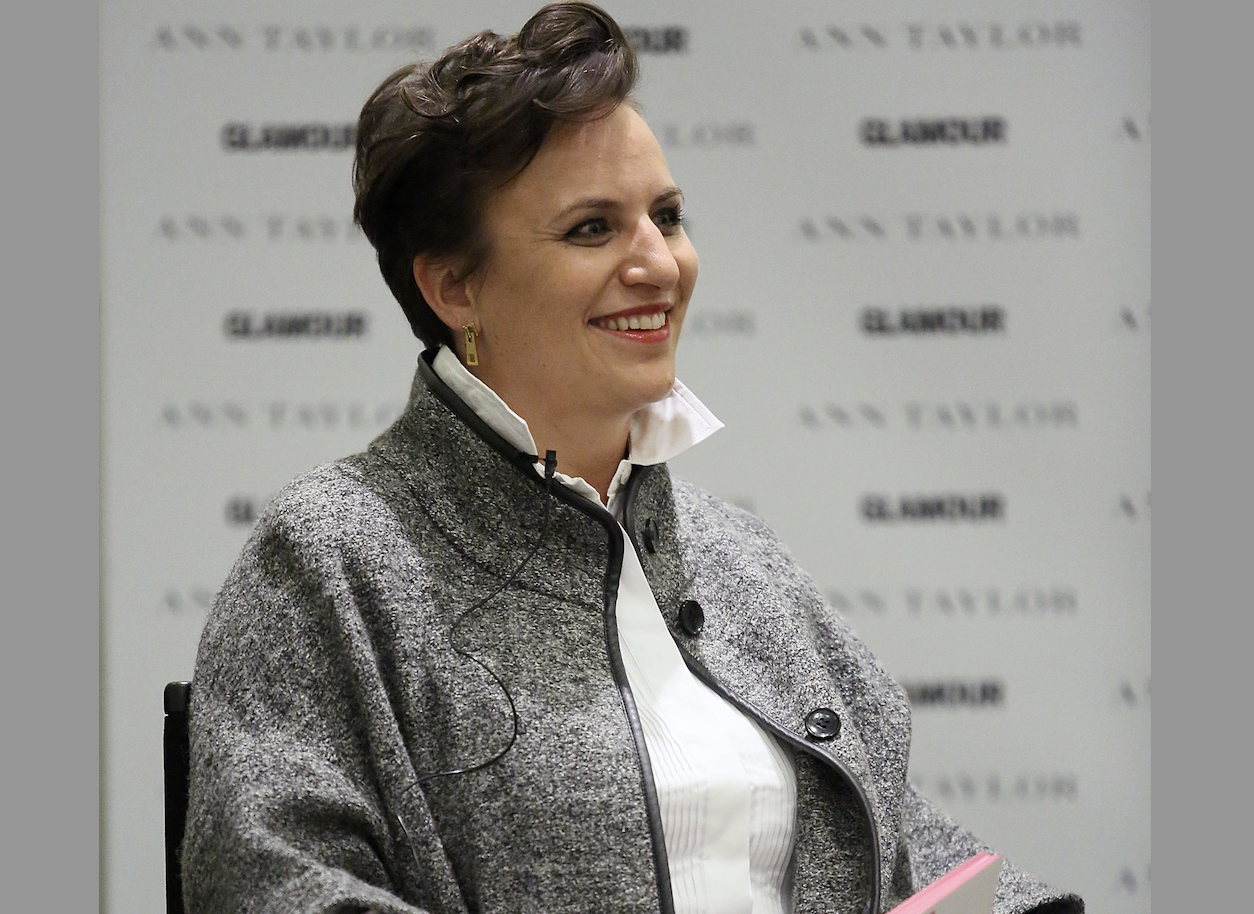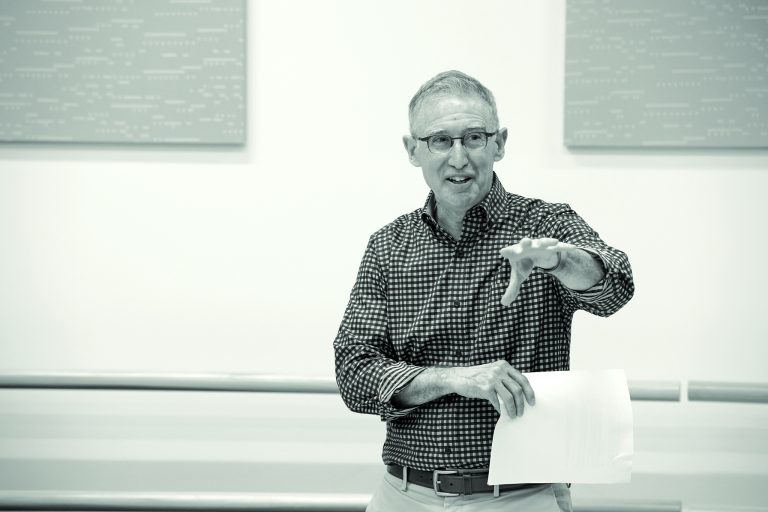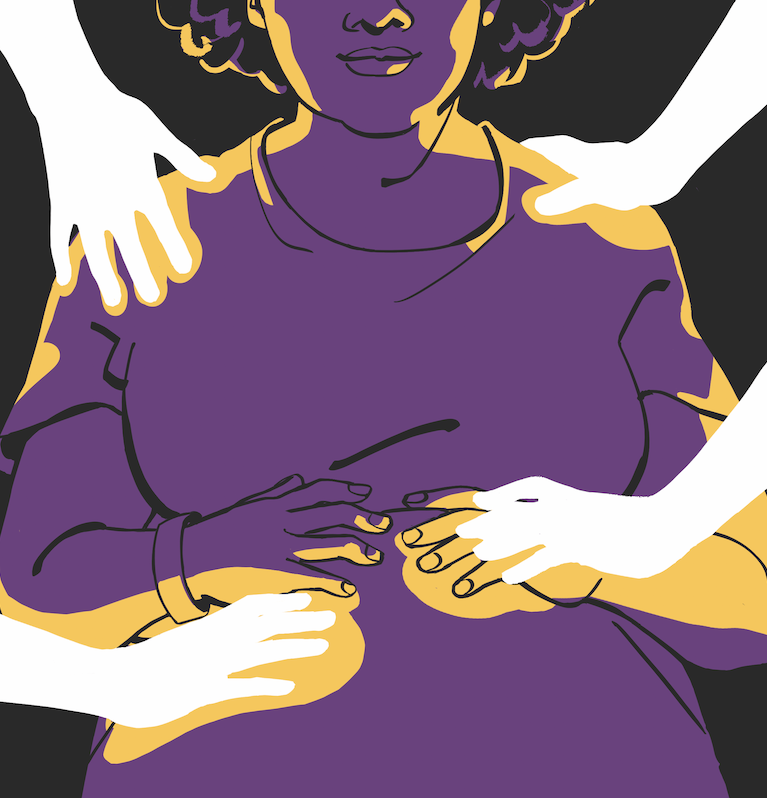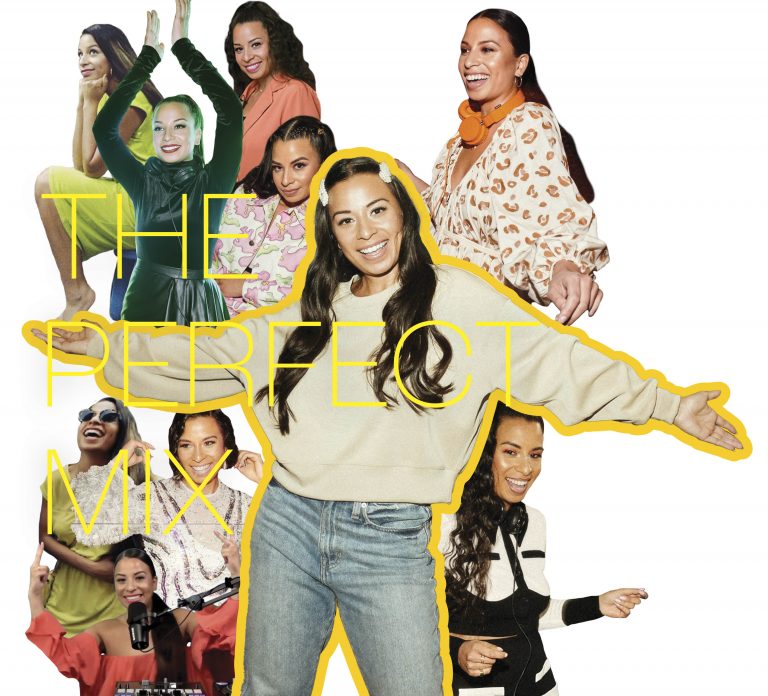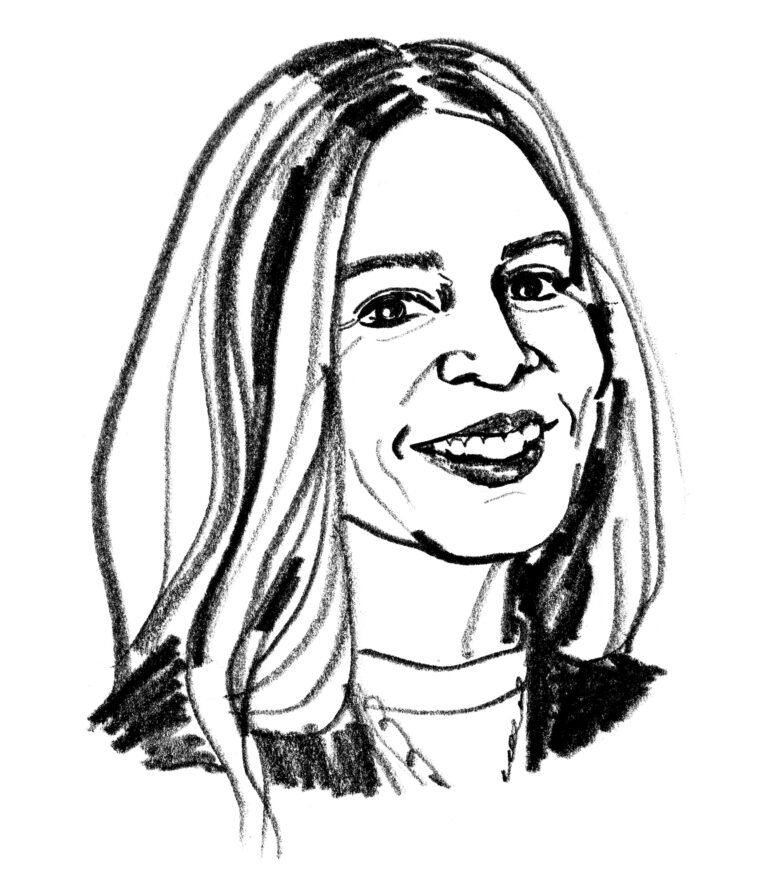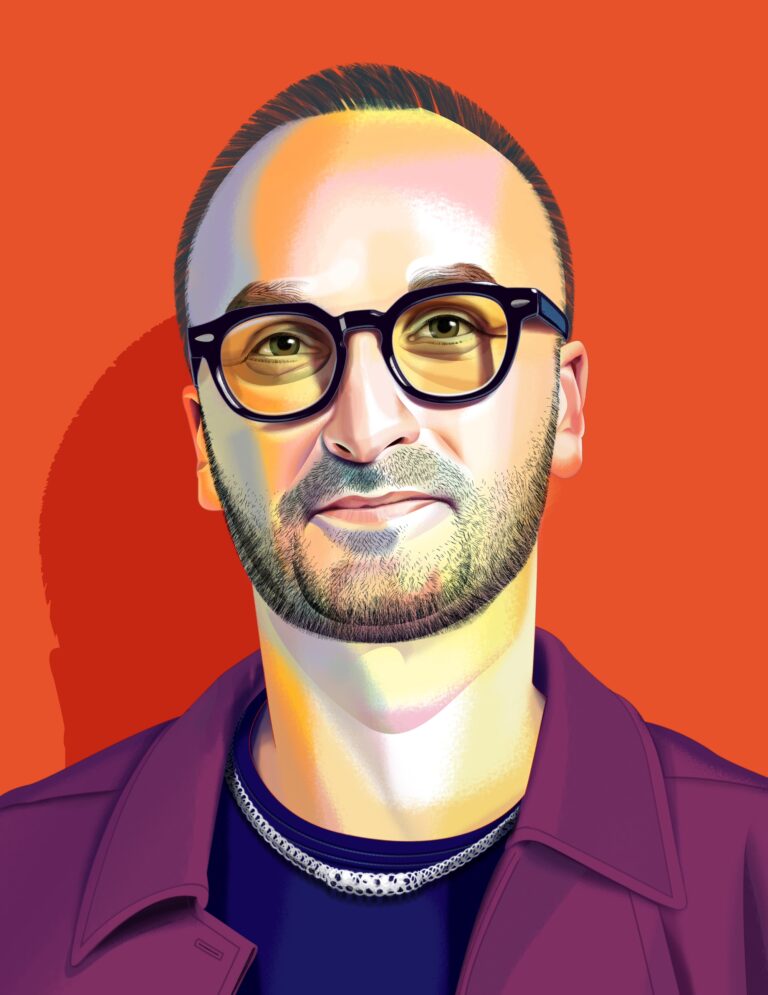The Invisible Hand
By Morgan Baker, MA ’85
Genevieve Roth ’02 is a natural storyteller. While she helps her clients quietly, behind the scenes, her enthusiasm and passion for social impact and culture change are palpable when she talks about her company, Invisible Hand. Based in New York with staff around the country, Invisible Hand is, in short, making the world a more equitable place.
“We believe that every company, and individual person, has the ability to make the world better in some ways,” says Roth, founder and CEO. “We help companies, individuals, and institutions unlock that potential.”
If you’re an individual with generational wealth, and you want to give back, Invisible Hand can help you figure out how to maximize your impact. If you’re a television studio putting out content every day, Roth can help
you interrogate your own biases and make sure you’re creating intentional content that lifts up different communities.
Some of the work that Invisible Hand does involves high-profile families and stealth projects; other opportunities, like its ongoing work with Spotify, can be seen on billboards in Times Square and near the Sydney (Australia) Opera House. “It’s so cool to imagine what can happen when a company that influential works to help more BIPOC, more diverse creators, move into the podcast space or see the impact that they can have with a campaign around mental health. I really think we can make a big difference with these projects,” says Roth.
She weaves the story of her own life into a riveting narrative of how she came to found Invisible Hand. “Being the only woman in a men’s magazine editorial room will teach you a thing or two, and I was raised by an incredibly strong woman who was widowed,” she says. “Most of the stories in my career involved, at
some point, some exceptional women doing me a solid.”
“My mother has always said that we live it forward, and we understand it backward,” she says.
Raised in Alaska, Roth has worked at a number of magazines, including GQ, Esquire, and Glamour. She also worked on Hillary Clinton’s 2016 presidential campaign, and was a proud early supporter of the Women’s March.
All of these experiences influenced Roth and gave her a thesis with which to work: “How we might be engaged in culture work in a different way, and how we might use storytelling and tools of culture to make the
world better,” she says.
“My company started gradually, and then all at once. After the Hillary campaign, I had been consulting for a small number of clients. Then I got a phone call from Tina Chen, a friend and mentor and then Michelle Obama’s chief of staff—see a theme here—who told me she thought what I was building was…a proper
company,” Roth says. “Sometimes you need a nudge from someone who loves you to help you see yourself and your potential through their eyes.”
But for Roth, the risk of starting out on her own wasn’t the hard part of launching. It was finding the courage to be brave.
“I’ve lived with ambiguity a lot of my life— I’ve been laid off, I’ve lost a parent, I’ve been part of a losing presidential election. Each of those things came with their own gifts. Nothing is ever wholly good or wholly bad,” she says. “When the world has shown you it is wildly uncertain, incredibly magical, cool stuff can [still] happen, and it becomes easier to be brave.”
Invisible Hand has grown to a team of more than 15 people, made up of former journalists, politicos, nonprofit professionals, and grassroots organizers. The company’s name, Invisible Hand, was born in part because Roth
enjoys working behind the scenes. “Though, these days we’re trying to be just a little bit more visible,” she joked. The name also invokes philosopher Adam Smith’s Invisible Hand economic theory, which states that in a free market, self-interested people operate within a system of mutual interdependence, which motivates them to create what is socially necessary—but with a twist. “We think we can design systems that have impact, but we believe we can design that impact for good,” she says.
As for the systems that Invisible Hand likes to design, a lot of it has to do with culture. “I was a writer and a creative first. I want to help everyone who comes to us realize their potential for good,” says Roth. “And it just so happens that I believe that tools of culture and storytelling are powerful accelerants to that.”
Before Roth stepped foot into the professional world, however, she was an Emerson student, learning about the power of storytelling. “I can trace every good thing that happened in my journalism career to my first magazine writing class, taught by David Freedman, and the connections I made there. I met some of my
best friends,” she said. “I still speak with my mentor, Dr. Jeff Seglin. The pre-professional nature of the classes and the fact that the best classes I took were taught by practitioners meant that we had an active line into the
industry we were trying to enter.”
And while she’s no longer a journalist, “I don’t think I’d be a CEO without the education I got at Emerson,” she says.
Today, at the helm of Invisible Hand, Roth says the work is “incredibly fun and hard and it’s tireless.”
“That we get to do this every day is the great gift of my life,” she says. “Maybe this is optimistic, but it’s who I am. I’m just a big believer that once you know better, you want to do better.”

